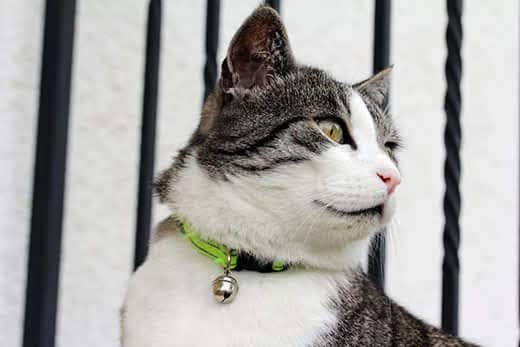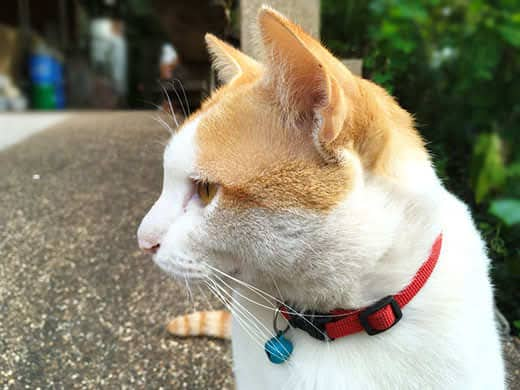
-
Find the right food for your petTake this quiz to see which food may be the best for your furry friend.Find the right food for your petTake this quiz to see which food may be the best for your furry friend.Featured products
 Adult Large Breed Chicken & Barley Recipe Dog Food
Adult Large Breed Chicken & Barley Recipe Dog FoodSupports healthy joints, lean muscle, and beautiful coat for large breed dogs
Shop Now Hill's Science Diet Adult Chicken & Beef Entrée Dog Food
Hill's Science Diet Adult Chicken & Beef Entrée Dog FoodChicken & Beef Entrée in a delicious loaf with complete & balanced nutrition to help keep adult dogs active and healthy
Shop Now Adult Chicken & Barley Recipe Dog Food
Adult Chicken & Barley Recipe Dog FoodSupports lean muscle and beautiful coat for adult dogs
Shop NowFeatured products Adult 7+ Indoor Chicken Recipe Cat Food
Adult 7+ Indoor Chicken Recipe Cat FoodSupports energy level and beautiful fur in mature indoor cats
Shop Now Senior Vitality Adult 7+ Tuna & Vegetables Stew
Senior Vitality Adult 7+ Tuna & Vegetables StewImproves Everyday Ability to Get Up & Go
Shop Now Adult Turkey & Liver Entrée Cat Food
Adult Turkey & Liver Entrée Cat FoodPrecisely balanced nutrition with the delicious taste of minced turkey & liver to help fuel the energy needs of cats during the prime of their life
Shop Now -
Dog
- Dog Tips & Articles
-
Health Category
- Weight
- Food & Environmental Sensitivities
- Urinary
- Digestive
- Joint
- Kidney
-
Life Stage
- Puppy Nutrition
- Adult Nutrition
- Senior Nutrition
Cat- Cat Tips & Articles
-
Health Category
- Weight
- Skin & Food Sensitivities
- Urinary
- Digestive
- Kidney
-
Life Stage
- Kitten Nutrition
- Adult Nutrition
Featured articles The Science Behind Our Love for Pets
The Science Behind Our Love for PetsLearn the scientific reasons why we have such strong connections with our pets, and what science says about the love between humans and our furry friends.
Read More How to Properly Mix Wet & Dry Pet Foods
How to Properly Mix Wet & Dry Pet FoodsAn Orange cat eating from a bowl filled with mixed food
Read More What Is Littermate Syndrome? Pet Adoption Guide
What Is Littermate Syndrome? Pet Adoption GuideLearn more about littermate syndrome in dogs and cats and how to successfully navigate adoption and early socialization processes.
Read More -


If your cat's gurgling stomach is keeping you up at night, you may be wondering how healthy your cat's digestive system is. In most cases, when a cat's stomach is making noises, it's the result of simple digestive movement. Although typically unrelated to more serious health disturbances, it's always worth investigating these sounds to determine whether they're a sign of something more. Is your cat's stomach making noises? Read on to learn what may be causing it and when to reach out to your veterinarian.
Breaking Down Why My Cat's Stomach Gurgles
The grumbling, gurgling sound that a feline stomach makes is called borborygmus, which is the term for the bubbly sound gasses make as they're pushing their way through the stomach and the intestines.

Picture what's happening as pockets of gas getting "popped" as they're continually squeezed by the almost rhythmic forward propulsion of ingested food. Gases are always present in the gastrointestinal (GI) tract, either because they're ingested at mealtime (along with food) or because they're created by the teeming of bacteria as they work to help digest nutrients delivered by the food. Either way, gas is a normal participant in the digestive process.
However, some cats have louder digestive sounds than others — sounds that typically occur within an hour or two after a meal. Meanwhile, others will only produce these sounds when they're obviously experiencing discomfort or displaying clinical signs of a potential condition.
Cat's Stomach Making Noises: Other Signs to Look Out For
You may find yourself wondering, "My cat's stomach gurgles often — what other signs could signal there is a problem?" The first thing you should do is take note of how your cat is feeling aside from the stomach gurgling. If your cat is showing no other signs of disease or discomfort, and the gurgling is part of their normal after-meal routine, it's unlikely to be a cause for alarm. Nevertheless, it's always helpful to ask your vet about these sounds during your cat's next check-up.
However, if a cat with borborygmus starts showing signs of disease or discomfort, an urgent veterinary visit is definitely in order. Specific signs to look out for include:
- Decreased appetite
- Vomiting
- Regurgitation
- Abnormal stool quality or quantity
- Changes in eating habits
- Abdominal discomfort
- Lethargy
These crucial signs may be subtle and tough to identify, especially in multi-cat households. Extra vigilance is always recommended in these cases. If your cat isn't eating at all, this is considered an emergency that requires a prompt consultation with your veterinarian.
Potential Causes From Within the GI Tract
The persistent gurgling of gases can be the result of a disease within the GI tract itself or of some other organ system (or systemic disease). Causes from within the GI tract may include the following:

- Food sensitivities or allergies, sometimes classified as inflammatory bowel disease (which can also be triggered by stress)
- Foreign body ingestion (toys, strings, etc.)
- Hairballs
- Stomach ulcers
- Cancer of the GI tract
- Intestinal irritation (related to parasites, eating new foods or ingesting spoiled food)
In fact, anything that causes a change in a cat's normal intestinal bacteria can cause excessive gas production, increased gastrointestinal activity and, therefore, borborygmus.


Tasty Tips
Potential Causes Due to Non-Digestive Diseases
A wide variety of illnesses can also lead to an upset digestive tract and abnormal gas activity. Here are a few of the more common reasons:
- Ingesting excessive amounts of gas, as can happen with respiratory or dental problems
- Diseases that cause nausea, such as brain, liver and kidney diseases
- Pancreatitis
- Cancers
- Thyroid disease
- Infections
Even simple stress can lead to an upset stomach in cats.
Soothing Treatments and Interventions
Let's say your cat's sounds are mild, occasional and unaffiliated with any of the more concerning signs of disease — and you've seen your vet. In most cases, no treatment is required. However, it's always worthwhile to try one or more simple remedies for an upset stomach.
- Probiotics: These "good" bacterial colonies can help even out bacterial disturbances of the GI tract.
- Prebiotics: These are nutrients that feed the "good" bacteria, thereby preferentially supporting these colonies. Digestible fiber is the most common prebiotic.
- Hairball remedies: These can offer some assistance for cats who have frequent hairball challenges. However, brushing regularly is often just as effective.
As always, ask your vet before embarking on any new course of treatment.
Preventing Cat Stomach Gurgling
Many cat parents may say to themselves, "My cat's stomach gurgles — is there anything I can do to prevent this?" If the gurgling seems persistent and possibly uncomfortable, and your vet has found no major cause for concern, consider the use of probiotics and prebiotics to help support the feline GI tract. Many are available as over-the-counter dietary supplements.
Therapeutic gastrointestinal foods for "sensitive stomachs" are also a consideration as these can often help prevent GI disturbances through a number of means. These foods are available from your vet, so go ahead and ask if one is appropriate for your furry friend.


Dr. Patty Khuly is an award-winning veterinarian known for her independent thinking, her spirited pet advocacy, her passion for the veterinary profession, and her famously irreverent pet health writing.
Dr. K is an honors graduate of both Wellesley College and the University of Pennsylvania School of Veterinary Medicine. She received her MBA at The Wharton School of Business as part of the prestigious VMD/MBA dual-degree program. She now owns Sunset Animal Clinic, a veterinary practice in Miami, Florida.
Related products

Improves Everyday Ability to Get Up & Go

Precisely balanced nutrition with the delicious taste of minced turkey & liver to help fuel the energy needs of cats during the prime of their life

Supports energy level and beautiful fur in mature indoor cats

Delectable chunks with tender chicken smothered in a rich gravy
Related articles

Discover which cat toys games your feline friend might like, and how they are great sources of exercise. Explore our library of articles to learn more.

When you adopt a cat, you don't just gain a best friend; you also save her life. Here's why getting a cat from a local animal shelter makes so much sense.

Learn how to litter train a kitten with this guide to potty training, including when to start litter training kittens and troubleshooting tips.

Discover how to train your cat, starting with very basic first steps that both reward good behavior and discourage the bad.

Put your cat on a diet without them knowing
Our low calorie formula helps you control your cat's weight. It's packed with high-quality protein for building lean muscles, and made with purposeful ingredients for a flavorful, nutritious meal. Clinically proven antioxidants, Vitamin C+E, help promote a healthy immune system.
Put your cat on a diet without them knowing
Our low calorie formula helps you control your cat's weight. It's packed with high-quality protein for building lean muscles, and made with purposeful ingredients for a flavorful, nutritious meal. Clinically proven antioxidants, Vitamin C+E, help promote a healthy immune system.

